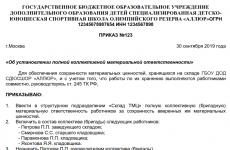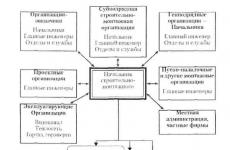The Central Bank tightens supervision over the credit histories of citizens. Credit Bureau: instructions for use Request information from the credit bureau
Sooner or later it occurs in any active borrower. The fact is that even if a person has never taken out a loan in his life, his story may be spoiled. And this is fraught with various unpleasant consequences. And to prevent this from happening, checking your credit history once a year is possible for free.
Where to ask?
The question that concerns most borrowers has a fairly simple answer.
Credit history is made up of information submitted by financial institutions. There is a Credit History Bureau, which is filled with information about all loan payments and loans for any person. There are about thirty such bureaus on the territory of our country. Banks can work both with one bureau and with several. In the bureau of credit histories, passport data is not registered, but "numbers of subjects" are assigned. By this number, bureau employees can easily find information about any credited person. And the borrower can change the results of this data only in case of an error. To improve your credit reputation, it is enough to take a loan and repay it in a timely manner.
Knowing that one person's data may be spread across several bureaus, many people ask how to see the whole picture of credit history. It happens in the following way.
First, several requests are sent at once to all major credit bureaus. But such an action, as well as a long subsequent wait, can be avoided by leaving a request on the website of the Central Bank of Russia. The answer to such a request will be an indication of the bureaus that contain information on the requested person.
Credit histories are stored for a decade. After this period, the information is erased, and this is good news. You can change your credit history no earlier than 10 years later.
Query Algorithm
First you need to look at the website of the Central Bank of Russia. Then find an electronic form to fill out and enter the following data in it:
- personal information;
- passport data;
- subject number from the bureau of credit histories;
- E-mail address.
The processing of the request takes approximately three days, after which a list of credit bureaus containing the required data is sent to the email address. And requests are already sent to well-known credit bureaus.
Obtaining the number of the subject of credit histories
You can get a verification number only if the borrower knows at least one of his history numbers.
How to find out the number if the previous one is lost or completely unknown?
Usually it is prescribed in loan agreements or loan agreements. Provided that the document has not been lost or disposed of, there are no problems with finding the number. All this applies only to loan agreements concluded after 2004. Up to this point, no such numbers have been assigned.
More than once there were cases when the manager showed negligence or inattention and simply did not enter this number in the loan agreement. Then the credit history check will begin with the following:
- Go to absolutely any banking organization or credit bureau.
- Write a request to the bureau for the issuance of fragments of the individual's credit history. For this, a passport is enough. A credit history check is free of charge, and if this is not the case, then you need to demand a free service, referring to the Federal Law "On Credit History Bureaus". Bank employees cannot refuse a request because the code is unknown, because banks have the right to perform such operations without a number.
- Wait for a response to your request within three days.
After all the actions taken, the borrower has a list of all credit bureaus in his hands and can send requests to the exact addresses. The second and subsequent credit history requests are serviced for money - three hundred or five hundred rubles. All credit bureaus have revenue only from these payments.
Obtaining information on a paid basis
If the borrower does not have the opportunity to spend time waiting, and then on repeated requests, then he can get all the information on his credit history at once, but for money. Or you will have to pay in the case of the second or third request during the year.
How to get information about credit history, but on a paid basis?
- Look at the bureau, having with you information about registration and an identity document.
- Discuss the necessary services with a bank employee and beat off the check.
- Return to the credit bureau with proof of payment.
- Make an application for the leadership of the bureau in free form.
- Expect a response within 10 days.
Receiving information remotely
When it is not possible to personally go to the credit history bureau or in the absence of its representation at the place of residence, it is permissible to request data in writing.
- Make a call to the organization to clarify the details of the credit history bureau and the amount to be paid.
- Pay and endorse by check.
- Compose an appeal in any form.
- Get the application notarized.
- Send a registered letter with an appeal and an enclosed check.
- Wait ten days for a response.
Who needs a credit history?

First of all, information about the credit history is needed by financial institutions lending money to individuals. Looking at someone's credit history, the lender forms an idea about the reliability of the borrower and his responsibility. The reputation of the borrower is of paramount importance in loan approval.
There are reasons why credit history needs to be monitored:
- Banking errors such as missing credit repayment stamps. Because of such seemingly trifles, a loan can be denied.
- Fraud protection. Since the process of obtaining a loan is facilitated, the scammers have become more active. Anyone can take a loan without checking a credit history on a card, and regular monitoring of information on your history will help you not get into the network of scammers.
- The concept of the reasons for denial of credit. Banking organizations are not required to justify their refusal, but you can check the relevant history and, in the event of a low creditworthiness of the borrower, try to correct the situation.
- Crossing the borders of the homeland. A person who has debts on loans simply will not go through customs. And in order to prepare and secure yourself, it is better to know your credit history in advance.
How to fix?
If the reputation of the borrower is not credible, and the loan is very necessary, you need to try to correct the situation. And the correction is possible in only one way - by taking a new loan without checking the credit history on the card or in cash and timely overlap.
Fix #1

Apply for a microloan card. It will not work without credit history checks, and the loan amount will depend on creditworthiness. It is better to choose the minimum term for such a loan and to cover the loan in a timely manner.
Method of correction number 2

Get a credit card. There are banks that will issue this type of loan with a bad credit history without any checks. By paying with a credit card and returning the money on time, you can improve your reputation and use banking services for free.
Method of correction number 3

An excellent way out is to obtain a consumer loan in the amount of up to one hundred thousand. For example, there is a credit history treatment program at Sovcombank. You can come to any bank and apply for a loan with a credit history check for the minimum possible amount. The repayment period is also better to choose no more than six months. Closing the loan on time and making payments on time will improve the borrower's reputation.
Method of correction number 4
There are organizations that issue microloans on a card without checking a credit history. The amount, of course, can be very small, but the purpose of such a loan is not to satisfy financial needs, but to correct your personal credit history.
Where can I get a loan with a negative credit history?
Not everywhere the reputation of the borrower is checked. A loan, like a microloan, is issued by a few banks without checking a credit history. These are not only young banks, but also those that have a long-term reputation. Interest in such cases goes off scale, which guarantees bank insurance. The bank will also give consent in the case of permanent residence at the place of the loan request and reliable income.
Banks that approve loans and do not look at credit history:
- "Renaissance Credit". A large number of approvals even with a bad credit reputation of the borrower. To apply for a loan, you need documents confirming income, and property that can be used as collateral.
- Russian Standard Bank". Provides loans without checking credit history. Urgently and only on the security of property.
- Zapsibkombank. Does not check credit history and can approve a loan up to one and a half million rubles. You need to collect an impressive amount of documents and confirm your income.

A refusal to a borrower can be not only because of a bad reputation, but also because of a lack of credit history. Information is not always stored in only one bureau, and banking organizations can cooperate with only one. To prevent this from happening, it is better to have data about your history on hand.
With full confidence in a good credit history and the bank's refusal, it is necessary to check with the previous lender whether he entered the repayment data in the borrower's history. This is a very important point.
If a borrower needs to find out information about his credit history online, then it is better to pay attention to the pillars of this niche. These include:
- "Equifax";
- national bureau of credit histories;
- united bureau of credit histories;
- credit bureau "Russian Standard".
How is credit history checked?

There are a considerable number of credit history bureaus in Russia, and each financial institution chooses which bureau to cooperate with. The algorithm of the bank's action upon receipt of an application for a loan is as follows:
- The application is received and the bank employee sends a request to the central catalog of credit histories. This is done in order to understand in which bureaus you can find all the information about the borrower.
- After answering the request, the bank employee sends the next requests for information about the borrower's credit history to the bureau from the list.
- The Bureau checks the data and draws up a report in writing.
- When a bank employee receives a paper with a report, a decision is made to issue or refuse a loan.
The bank decides whether to approve or refuse a loan by comparing several factors:
- borrower's creditworthiness;
- security report;
- report of risk managers;
- age, experience, salary.
Waiting for a response can also range from several minutes to several days. Everything depends on the speed of the work of credit bureaus.
Banking organizations are interested not only in the amount of the loan and the timeliness of its overlap, but also pay attention to interest rates and the duration of loans approved and valid to date. Only when all requirements are met, the bank transfers the loan to the card. Credit history checks have been actively used since 2008. Information about the borrower's credit history can only be obtained by a bank that has entered into a cooperation agreement with a credit history bureau.
What should you always remember? The fact that the bank cannot independently start collecting information on the borrower's credit history without his consent. That is, you can not agree to this procedure. But in this case, you need to understand that at present, without checking your credit history, it is impossible to get a loan for a serious amount, which is sometimes so necessary.
If you choose the right algorithm of actions and responsibly approach loan payments, then such problems will never arise.
Each borrower has his own credit history, the formation of which occurs already at the first contact with any financial institution. Information regarding credit reputation is located in the credit history bureau (CBI). BKI is a commercial structure that accumulates, stores, and also provides the information necessary for the client directly upon his official application.
The need for a credit history
When a client applies to the bank for a loan, he agrees to send personal information to the CBI in order to check whether there are active or closed loans, as well as whether there were delays or penalties, etc. It is this information that will provide a complete picture of a potential borrower, on the basis of which the bank will make a decision on issuing a loan.
However, every citizen has the right to independently request a credit reputation check. At the same time, it must be borne in mind that the first time, and also once a year in the future, such a service is provided completely free of charge. Requests that will exceed this limit must be paid by the client at the established CBI rate.
How to apply for BCI
There are several methods for filling out and sending an application to the BKI. Let's consider each of them in more detail:
- One of the easiest ways is to complete and submit a request at the nearest branch of the Credit Bureau, subject to a personal visit. A client who wishes to receive information about his credit history must provide only his passport. Employees of the BKI will help him competently and correctly draw up an application.
- Making and sending a request via the Internet. It should be noted that the functioning of the corresponding service in the Russian Federation is carried out within the framework of the official portal of the Central Bank. At the same time, the client must keep in mind that, if the request is sent via the Internet, he must know his code of the credit history subject. The formation of this code occurs automatically at the time of filing the first application for a loan with the bank. Directly BKI can provide its customers with services for changing, as well as the complete annulment of these codes.
- Sending a request to the BKI via regular mail by letter or telegram. In this case, the request must be drawn up in a specially approved form, and the signature must be notarized. At the time of sending the request by telegram, the telegraph employee must certify the client's signature directly on the passport.
Important! It is strongly not recommended to trust third-party sites that promise to provide a credit history after a few days or hours. The credit history is stored exclusively in the BKI, and you can get it only after confirming your identity. Disclosure of this information to third parties is strictly prohibited.
Also, the client has the right to obtain information about his credit reputation through a banking institution, even if he refused to issue a loan to him. To do this, the client must write an appropriate application, the form of which is provided by the bank. The application indicates that the client does not agree with the decision made by the bank and demands to provide him with information about the credit history. By law, the bank has no right to refuse to comply with this requirement. Therefore, he himself must send a corresponding application to the BKI.
All samples and application forms for credit bureaus available on the Internet are not universal and in most cases are completely useless. To write a competent legally correct statement, you need to contact the bank or a lawyer.
Banks traditionally offer the most favorable lending conditions to citizens with a positive credit history (CI), so they always make a request to the BCI regarding the client's reputation. We will tell you more about how it is formed, where it is stored and whether it is possible to submit a request to the BKI online for free.
How credit archives work
Information about the clients of financial organizations is collected by special credit history bureaus ( BKI), of which there are 16 in Russia. These are commercial structures that provide services for processing, storing CI and issuing reports based on requests from individuals and legal entities.
According to the law credit institutions are required to conclude cooperation agreements with at least one credit institution, where they subsequently transfer information on each borrower. Bureau employees not only collect data, but also evaluate clients.
When applying for a loan for the first time, each borrower is assigned an individual alphanumeric code. This cipher is used to identify the CI of a particular subject.
What information is stored by the BCI
The BKI database contains information on loans taken by Russians since 2005. There are no general standards for registering credit histories, but they must contain:
Personal information: full name, passport details, place of registration, contacts (phone, e-mail);
information on closed and active loans: dates of execution, amounts, collateral for loans, information on financial discipline, overdue payments;
data on submitted loan applications and results;
information about the application of financiers for obtaining a clinical trial.
Additional information about debts can be entered by mobile operators, bailiffs, and other authorized bodies.
Who requests credit reports
BKI services are used credit institutions, insurance companies, employers. Based on the reports provided by the bureau, they draw conclusions about the reliability of clients and employees.
For bankers the cleanliness of the potential borrower's file is the main factor in making a decision to grant a loan. Previously, the banking security service was engaged in checking customers, but centralized information is much more complete and reliable.
Insurers make a request to the BKI to protect themselves from problem customers. There are known facts when credited citizens invented stories with insured events to receive funds. Therefore, as in the case of creditors, doubtful customers are either increased in the cost of the policy or denied insurance altogether.
Reputable company owners they also want to make sure of the decency of a potential employee so as not to have problems in the future.
Responsible Borrowers also quite often apply for extracts from the BCI. You should make sure that there are no errors in the dossier before the next contact with the bank, otherwise you can get a refusal to lend even without explaining the reasons. There are times when:
Borrowers forget about past delinquencies;
the bank mistakenly enters incorrect information into the CI;
due to a software failure, payments are delayed;
scammers "hang" loans in someone else's name.
That is why it is necessary to periodically personally control the data contained in the credit history. The inconvenience is caused by the fact that dossiers can be simultaneously stored in several bureaus and vary in content.
How to submit a request to the BCI online for free?
Russians have the right once a year, receive a free report from the BCI. Moreover, each of the bureaus that store the history of the subject is obliged to provide information without payment. It is only necessary to know exactly the addresses of these organizations.
CI subject codes can request a list of bureaus through the regulator’s website by filling out the corresponding application in the CCCH section. Those who have forgotten their code will have to send a request to the CI Central Catalog by telegram or use the services of the National BCI, which has the most extensive database.
If the borrower knows for sure in which bureau his CI is located, he can directly apply directly there:
Pay a personal visit (with a passport);
send a telegram or a letter to the postal address of the BKI.
Unfortunately, there are no other options to receive a report through the bureau. Make a request to the BCI online free today is not possible. Institutions do not provide this service over the Internet.
You can make a request to the BCI online through reliable partners of the NBKI, such as the service ↪ BKI24.INFO. A detailed report with a rating score will be sent to the applicant's email in just 15 minutes.
It should be noted that obtaining information on credit relations is a demanded service. The Internet is replete with offers for a meager fee and even without registering to provide the necessary information. Here are just the reliability of such information is highly questionable. because borrower data is securely protected.
Service with official status ↪ BKI24.INFO necessarily requires the client identity verification by providing passport information. The service is constantly improving work with clients. After successfully receiving the report, everyone can leave their feedback.
How to make a request to the BKI online for free? Find out your credit history! was last modified: May 15th, 2017 by Alexander Nevskiy
Before making a decision on issuing loans to customers, most banks resort to checking the borrower's credit history. It is carried out through official credit bureaus (CHBs), which were established in Russia more than 10 years ago. This database is formed on the basis of data on borrowers submitted by banks. How is the credit history of citizens checked and how does it affect obtaining a loan?
What is good and bad credit history
The credit history (CI) of the borrower is considered one of the main factors influencing the bank's decision to issue a loan:
- positive CI (loans were repaid on time or ahead of schedule) significantly increases the likelihood of issuing a second loan;
- negative CI (there is evidence of frequent delays, loan defaults) is the main reason for bank refusals to provide loans.
For customers with a good credit history, banks can provide loans at a reduced interest rate using a customer loyalty program. Such offers are generally available only to regular customers. In any case, an impeccable CI greatly reduces the period for the bank to consider a loan application.
When making a decision to issue a loan, credit institutions are guided by data on the borrower for the past few years (from 1 to 3). Old delays will not be taken into account. Particular attention is also paid to the nature of overdue payments:
- if the borrower made minor delays, he will receive a loan in most banks;
- if the delays lasted no more than 90 days, the bank may take them for temporary difficulties of the client and also issue a loan;
- frequent and long delays in payment will be the basis for refusing a loan.
 A positive feature of the credit history is also the restructuring of the loan, provided that all obligations to the creditor are fully fulfilled. Of course, a loan that has only made a couple of payments or none at all will make CI completely ruined.
A positive feature of the credit history is also the restructuring of the loan, provided that all obligations to the creditor are fully fulfilled. Of course, a loan that has only made a couple of payments or none at all will make CI completely ruined. - scoring score;
- the result of the security check;
- withdrawal of risk managers;
- compliance with the requirements - salary, length of service, age.
The time during which a report on the borrower's credit history is provided depends on the particular BCI. Some organizations give an answer in 1 - 2 days, others - almost instantly, within a few minutes.
The report on the credit history of an individual consists of 4 parts:
- Title - displays the information necessary to identify the client (full name, data of documents proving the identity of the borrower).
- Main - contains information about obligations (amount, due date, type of loan, number and period of delays) for active and closed loans.
- Additional - includes data on the sources of CI formation and its users.
- Informational - reflects information about the issuance of loans and refusals to lend, indicating the reason for the refusal.
An example of the main part of the report from the BCI:

During the period of checking the CI, the bank is interested not only in the level of financial discipline of the client (the amount and terms of closed loans). Also taken into account are interest rates and terms for the current obligations of the borrower.
Small amounts and periods of credit are usually ignored. However, if there are five or more delays (especially if the period exceeds 3 months), banks often refuse to provide a loan without explaining the reasons.
Which banks check credit history?
Since 2008, many Russian banks have been actively checking the credit history of clients applying for loans. Only those banks that have concluded the necessary agreements with the BKI can request a report from the CI of a potential borrower.
In addition, in order to send a request for information about a credit history, the bank must obtain the consent of the client. Today, most banks practice mandatory credit checks, especially when it comes to large consumer loans or mortgage lending.
Which banks do not check credit history when issuing loans
However, the credit history of the future borrower is not always checked. Even large banks that have been operating in the financial market for a very long time can issue express loans without checking in the BKI. Existing risks in such cases are more than covered by high interest rates. If a middle-aged borrower has a steady income and a residence permit in the required region, the lender is usually satisfied with the general portrait of the client.
Some borrowers with bad credit tend to fix it by making payments on a new loan on time. They can contact one of the banks that potentially do not check the CI:
- Renaissance-credit approves applications for citizens who have a damaged CI with documentary evidence of income and provision of collateral;
- Russian Standard provides a loan with a bad credit history secured by property;
- Zapsibkombank provides loans to customers without checking the IC in the amount of no more than 1.5 million rubles. subject to confirmation of income and the provision of a large list of documents.
 You can try your luck in microfinance organizations that provide small amounts of loans for a short time. This is the perfect way to fix bad credit.
You can try your luck in microfinance organizations that provide small amounts of loans for a short time. This is the perfect way to fix bad credit.
How to check credit history yourself for free?
To correctly determine your own chances of receiving the required amount from the bank, you can check the credit history stored in the BKI in advance. This service is provided completely free of charge only once a year. Repeated requests during the year will cost the applicant about 500 rubles.
You can get your credit history:
- by mail, for which an application certified by a notary should be sent to the address of one of the BCIs;
- telegram - a rather peculiar way, but it turns out cheaper and easier than going to a notary. To do this, you need to send a telegram to the BKI, where you indicate your passport data and certify the signature of the postal employee;
- in person - you must contact the BCI directly or its partners. In the second case, you will have to pay a commission to partners;
- via the Internet is the most popular and fastest way. This service is provided by some credit brokers. In addition, thanks to the recently launched joint project of the National Bureau of Credit Histories and the Association of Russian Banks, a report on your own CI is possible.
- If the bank denied you a loan, ask - perhaps the reason lies in the absence of your credit history. At the same time, it is desirable to have a report on your CI on hand. Some banks request information from the financial institutions with which they have been cooperating for a long time, and there might simply not be information about your credit history there.
- If you are sure that your CI is positive, and the bank refuses to provide a loan, you should contact the lender who issued you the loan. He could simply not transfer information about the fulfillment of your obligations to the BKI.
- If you want to get information about your credit history through the Internet, it is better to contact the leaders in this field. Such organizations are the National Bureau of Credit Histories, Equifax, United Bureau of Credit Histories and Credit Bureau Russian Standard. These BCIs own almost 95% of the information about the CIs of Russian citizens.






